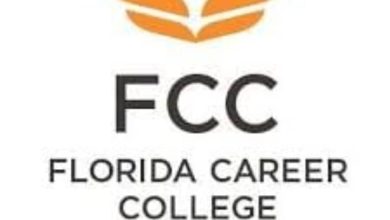Associates Degree in Finance: Admission, Tuition and Universities

Associate degrees in finance are relatively uncommon because a bachelor’s degree in finance is the entry-level degree for most finance employment. Only 142 nonprofit colleges and universities in the United States provide one, according to the National Center for Education Statistics (NCES). 1 Associate degrees typically consist of 60 credits and are completed in two years of full-time study. Associate of Science (AS), Associate of Applied Science (AAS), or Associate of Arts (AA) degrees are awarded. Basic finance topics and a general studies core are taught in associate-level finance programs.
Associate’s Degree in Finance programs are available at the following universities.
Bergen Community College
Students interested in the banking and financial areas can pursue an Associate of Applied Science (AAS) degree in Business Administration: Banking and Finance at Bergen Community College in New Jersey. Students take business, banking/finance, and liberal arts courses to strengthen their decision-making, critical thinking, and communication abilities. Graduates are prepared for entry-level careers in the mortgage, trust, and consumer lending areas of banks. Communication, humanities, social sciences, technology, and public speaking are all required courses in general education. Financial Accounting, Managerial Accounting, Principles of Banking, and Principles of Finance are all courses directly relevant to the major. The curriculum requires 60 credit hours to complete, and full-time students should be able to complete it in two years.
Bunker Hill Community College
Bunker Hill Community College (BHCC) in Boston offers an Associate of Science (AS) in Business Administration: Finance option that qualifies graduates for entry-level banking, insurance, brokerage, finance, or mutual funds positions, as well as transfer to four-year colleges and universities to continue their study of finance. Organizational Behavior and Design; Financial Management; Money & Banking; Introduction to Corporate Finance; and Mutual Funds Industry are among the four semesters of accounting, finance, problem-solving, and macroeconomics curriculum taken by students in the Finance emphasis. Graduates will be able to build a budget successfully, examine consumer investment decisions, review and analyze financial documents, and design a mutual fund portfolio for investors. For students interested in continuing their studies in finance, BHCC has transfer articulation arrangements with numerous local four-year colleges.
Related Post:Codecademy vs Udemy: Which Learning Platform is Better ?
Western Technical College
Western Technical College in Wisconsin provides a 63-credit Associate of Applied Science (AAS) in Financial Services program that takes four terms to complete. Students learn how to create reports, analyze financial statements, budgets, and investments, apply financial laws, and sell financial products to consumers in courses like Personal Insurance, Tax, and Estate Planning; Banking Principles; Lending Principles; Application of Financial Concepts; and Managerial Finance. To apply, you must have a high school diploma or GED, as well as ACCUPLACER assessment scores. Students who do not achieve a certain ACCUPLACER score may be compelled to take additional general studies courses. Western offers articulation agreements with numerous four-year schools in the area, including the University of Wisconsin and Franklin University, for students interested in continuing their education after graduation. Western also offers a Financial Services Representative Technical Diploma, which includes the same coursework as the AAS program’s first year.
Miami Dade College
For students interested in employment in banking, stocks, or other financial services, Miami Dade College (MDC) in Florida offers an Associate of Science (AS) degree in Financial Services-Banking. The program is meant for students who are new to the profession as well as those who are already working in the sector and want to further their careers. According to the institution, the curriculum meets the majority of the requirements for an American Bankers Association (ABA)/Center for Financial Training diploma or certificate (CFT). Financial Management, Mortgage Finance, and Banking are the three specialities available to students. Traditional and online learning choices are available, ranging from face-to-face education at one of seven locations to 100% online instruction through MDC Online or hybrid instruction. Graduates should be prepared to work as bankers, credit analysts, financial analysts, commercial lenders, mortgage brokers, operations managers, or financial services representatives, among other occupations.
University of Cincinnati
Students can get an Associate of Applied Business (AAB) in Financial Management Technology entirely online at the University of Cincinnati Online (UC Online). Students can receive their AAB in two years of full-time study in a flexible style that can be taken full-time or part-time. The degree can be used to get a job in entry-level roles, advance in your current job, or serve as a springboard to future education, such as UC’s 100% online Bachelor of Technical and Applied Studies (BTAS). By utilizing students’ existing critical thinking skills, the program equips them with the skills needed to successfully communicate as well as evaluate and solve difficult business challenges. Fundamentals of Financial Planning, Fundamentals of Risk Management, Legal Environment of Business, and Personal Finance are among the courses offered in the AAB program. Throughout the year, six start dates are available to accommodate a variety of schedules. The curriculum begins with a First Year Experience (FYE) course, from which students can pick between Decision Making Tools, Problem Solving Tools, and Introduction to Business.
Related Post:St Thomas University School of Law Ranking: Admissions and Tuition
When it comes to an Associate’s in Finance, how important is accreditation?
The U.S. Department of Education and the Council for Higher Education have approved one of the major regional accrediting agencies. Both transferability and reputation are dependent on accreditation. These organizations assess programs based on their management, curriculum standards, procedures, and instructors to ensure that the educational foundation meets the needs of American companies. Accreditation is a common norm that any respectable school will hold in high regard. Any program that does not value accreditation should be avoided.
A specialist accreditation would be beneficial to many of the schools you would choose for a career in finance. The following are the two CHEA-recognized specialist entities that offer associate-level business and accounting program accreditation:
–Accreditation Council for Business Schools and Programs (ACBSP) –International Assembly for Collegiate Business Education (IACBE) (ACBSP)
ACBSP is the only specialist accrediting body for business programs provided at schools that grant an associate’s degree as their highest degree, such as community colleges. ACBSP or IACBE can accredit four-year institutions and universities that offer associates degrees.
Selecting a speciality approved school necessitates meeting subject-specific requirements established by the sponsoring business community, such as the National Association of State Boards of Accountancy. While it is not required, it is a good approach to start with companies and four-year colleges who will look into where you received your associate’s degree.
FAQs
Is it possible to transfer credits from an associate’s degree in finance?
You are completely accurate if you believe that transferability is a significant benefit of an associate’s degree in finance. Many students use an associate’s degree as a low-cost, quick way to get into a four-year program. In addition, an undergraduate degree boosts a professional’s compensation and employment opportunities in finance.
Simply said, it is entirely the responsibility of the student to prepare ahead and ensure that the courses taken as part of an associate’s degree will transfer to higher education. This fact, however, is not a big surprise, and business schools have plenty of program specialists on hand to answer any queries concerning transferability and course prerequisites.
Ideally, you’ll look for an associate’s program that includes credits that satisfy the criteria for the first two years of a bachelor’s degree. It is critical to have the right type of degree. If you want to pursue a Bachelor of Business Administration, for example, an Associate of Science in Finance may be a waste of time and money. In this scenario, an Associate of Arts in Business is likely to meet all of the requirements.
In general, two- and four-year universities in the same region have transfer relationships that make the procedure simple and almost automated. It would be great if you asked admissions office specialists this question before enrolling.
If you don’t have any transfer agreements in place, the next step is to examine the accreditations and curricula of your top institutions and programs. A four-year degree will typically be aware of and evaluate associate’s degrees based on how the coursework compares and contrasts to their own, as well as the weight of accreditations held by the two-year college.
When it comes to an Associate in Finance, how important is accreditation?
The U.S. Department of Education and the Council for Higher Education have approved one of the major regional accrediting agencies. Both transferability and reputation are dependent on accreditation. These organizations assess programs based on their management, curriculum standards, procedures, and instructors to ensure that the educational foundation meets the needs of American companies. Accreditation is a common norm that any respectable school will hold in high regard. Any program that does not value accreditation should be avoided.
A specialist accreditation would be beneficial to many of the schools you would choose for a career in finance. The following are the two CHEA-recognized specialist entities that offer associate-level business and accounting program accreditation:
–Accreditation Council for Business Schools and Programs (ACBSP) –International Assembly for Collegiate Business Education (IACBE) (ACBSP)
ACBSP is the only specialist accrediting body for business programs provided at schools that grant an associate’s degree as their highest degree, such as community colleges. ACBSP or IACBE can accredit four-year institutions and universities that offer associates degrees.
Selecting a speciality approved school necessitates meeting subject-specific requirements established by the sponsoring business community, such as the National Association of State Boards of Accountancy. While it is not required, it is a good approach to start with companies and four-year colleges who will look into where you received your associate’s degree.
Related Post:What to Wear for Graduation UnderGown
Conclusion
Now that you know what an associate’s degree in finance is, what educational options are available, and what you can accomplish with one, it’s time to start making plans to obtain this useful certificate.
1. Start by thinking about where you want your career to go in a peaceful, undisturbed environment. Make grandiose plans. Make a list of your thoughts. Define success and try to imagine what it would be like to work in your dream career.
2. Begin with the beginning after you have a general notion of where you want to go. What exactly are you searching for in a finance associate’s degree? Do you wish to remain in your current city or occupation? In this situation, look for local programs or online degrees. Are you prepared to relocate to a new location? Conduct an online search for business schools in the area of your choice. Your computer will be your most valuable asset at this point, as you can learn a lot about programs from the comfort of your couch or dining room table.
3. Contact admissions officers at some of the leading business schools in the country that offer associate’s degrees in finance. These colleges also have career consultants on staff who can provide vital program and professional information.








